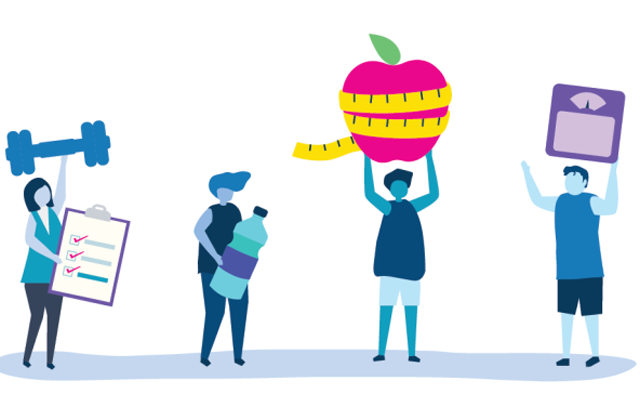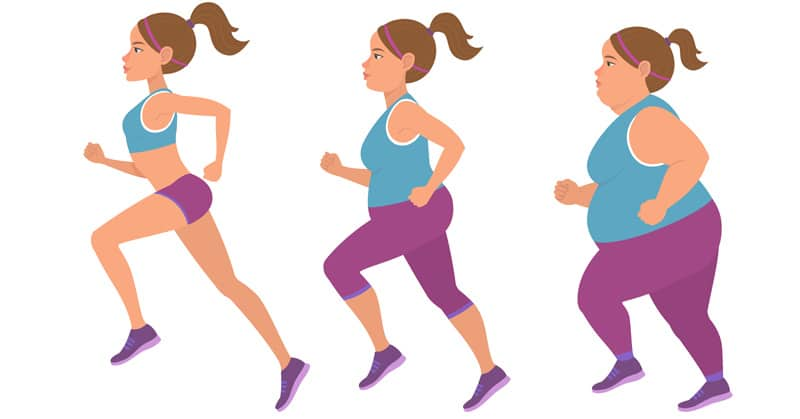Accelerated Slimming: A Guide to Rapid Weight Loss Diets
Rapid weight loss diets, such as very low-calorie diets (VLCDs) and low-calorie diets (LCDs), offer quick solutions for shedding excess pounds. VLCDs typically involve consuming as few as 800 calories per day, leading to significant weight reduction of up to 3 to 5 pounds per week, primarily through meal replacements to ensure adequate nutrition. Conversely, LCDs permit a slightly higher calorie intake, ranging from 1,000 to 1,600 calories daily, offering a more sustainable approach.
While these diets can yield rapid results, they're often recommended for short-term use under medical supervision due to potential health risks. Weight loss isn't just about the numbers on the scale; it involves considering the psychological and physiological impacts, ensuring proper nutrient balance, and integrating suitable exercise routines. Seeking guidance from healthcare professionals is crucial to navigate the safety concerns and maximize the effectiveness of rapid weight loss diets. Pages tab by clicking the edit button.

Health Risks and Benefits:
In the realm of rapid weight loss diets, understanding the delicate balance between health risks and benefits is paramount. While these diets can yield significant reductions on the scale in a relatively short span, they also come laden with potential health hazards that demand careful consideration.
On the benefits side, rapid weight loss can offer relief for individuals grappling with obesity-related health conditions such as diabetes, high cholesterol, and hypertension. Shedding excess pounds swiftly can lead to improvements in these markers, enhancing overall health and quality of life. Moreover, the psychological boost of visible weight loss can foster motivation and confidence, propelling individuals towards their wellness goals.
However, the rapid nature of these diets can pose substantial risks. Severe calorie restriction may result in nutrient deficiencies, muscle loss, and weakened immunity. Gallstones, fatigue, and electrolyte imbalances are among the physical consequences that may arise. Moreover, the potential for weight regain post-diet cessation underscores the importance of sustainable lifestyle changes.
Navigating these risks and benefits requires a nuanced approach, one that prioritizes individual health and well-being. Consulting with healthcare professionals before embarking on a rapid weight loss diet is crucial, as personalized guidance can help mitigate risks and optimize outcomes. By weighing the pros and cons thoughtfully, individuals can embark on their weight loss journey with confidence, knowing that their health remains the top priority.

Choosing the Right Approach:
In selecting the appropriate approach for rapid weight loss, understanding the nuances between very low-calorie diets (VLCDs) and low-calorie diets (LCDs) is crucial. VLCDs, characterized by severely restricted calorie intake, typically below 800 calories per day, yield rapid weight loss, often ranging from 3 to 5 pounds weekly. However, they are recommended primarily for individuals with obesity under close medical supervision, with durations typically not exceeding 12 weeks due to potential health risks.
On the other hand, LCDs allow for a higher calorie intake, ranging from approximately 1,000 to 1,600 calories daily. This makes them a more sustainable option for many, offering a slower yet still significant weight loss trajectory. Integrating a combination of meal replacements and regular foods, LCDs provide a more balanced approach to calorie restriction while ensuring essential nutrient intake.
When deciding between VLCDs and LCDs, considerations such as individual health status, weight loss goals, and ability to adhere to strict dietary protocols are paramount. Consulting with a healthcare provider or registered dietitian can provide personalized guidance, ensuring that the chosen approach aligns with both short-term weight loss objectives and long-term health goals. Ultimately, the right approach will prioritize safety, efficacy, and sustainability, laying the foundation for successful and lasting weight management.

Beyond the Scale:
Beyond the scale, rapid weight loss diets entail more than just numbers on a weighing scale. They delve into the intricate interplay between mind and body, impacting not only physical health but also psychological well-being. While shedding pounds swiftly may seem appealing, it's imperative to recognize the broader implications. Rapid weight loss can trigger emotional highs and lows, influencing self-esteem and body image.
Moreover, drastic dietary changes may disrupt daily routines and social interactions, posing challenges beyond mere calorie counting. Addressing these aspects involves fostering a holistic approach to health, emphasizing self-compassion, mindfulness, and sustainable lifestyle habits. By acknowledging the multifaceted nature of weight loss, individuals can cultivate a healthier relationship with food and their bodies, promoting long-term well-being beyond transient numerical goals.

Meal Replacements and Nutrient Balance:
In the realm of rapid weight loss diets, meal replacements serve as crucial components, often providing the foundation for calorie control and nutrient intake. These substitutes, ranging from shake and bars to soups and formulas, offer a convenient and structured approach to managing food consumption while ensuring essential nutrients.
One of the primary advantages of meal replacements is their ability to deliver a precise calorie count, simplifying the process of tracking intake and maintaining a calorie deficit conducive to weight loss. By replacing traditional meals with portion-controlled alternatives, individuals can effectively manage their energy intake without the need for meticulous calorie counting or portion measuring.
Moreover, meal replacements are meticulously formulated to provide a balanced mix of macronutrients and micronutrients, including proteins, carbohydrates, fats, vitamins, and minerals. This ensures that despite the reduced calorie intake, individuals still receive essential nutrients vital for overall health and well-being.
Another benefit lies in the convenience and accessibility of meal replacements, making them suitable for individuals with busy lifestyles or those lacking time and culinary skills for meal preparation. Additionally, their portability makes them convenient options for on-the-go consumption, enabling adherence to the diet plan even in hectic schedules.
However, it's essential to approach meal replacements with caution and mindfulness. While they offer convenience and structure, they should not completely replace whole, nutrient-rich foods in the long term. Incorporating whole foods whenever possible ensures a diverse array of nutrients and helps maintain dietary sustainability and enjoyment.
Ultimately, meal replacements can be valuable tools in a rapid weight loss diet, providing structure, convenience, and essential nutrients. However, they should be utilized as part of a comprehensive approach that emphasizes balanced nutrition, mindful eating, and long-term lifestyle changes for sustainable weight management.

The Role of Exercise:
In the realm of rapid weight loss diets, exercise plays a crucial yet nuanced role in achieving and sustaining results. While the primary focus of these diets is often centered on calorie restriction to create a significant energy deficit, incorporating physical activity can enhance overall outcomes and promote long-term success.
Exercise serves multiple purposes within a rapid weight loss regimen. Firstly, it contributes to further calorie expenditure, accelerating the rate of weight loss when combined with dietary modifications. Additionally, regular physical activity helps preserve lean muscle mass, mitigating the risk of muscle loss that can occur alongside rapid weight reduction.
Beyond its immediate impact on calorie burning, exercise offers numerous health benefits that complement the weight loss process. It improves cardiovascular health, enhances mood and mental well-being, and boosts metabolism, all of which contribute to overall health and vitality.
However, it's crucial to approach exercise within the context of rapid weight loss diets with caution and consideration. Intense or high-impact workouts may not be suitable for individuals with significant weight to lose or those with underlying health conditions. Instead, focusing on low-impact activities such as walking, swimming, or cycling can provide substantial benefits while minimizing the risk of injury.
Ultimately, the role of exercise in rapid weight loss extends beyond mere calorie expenditure, encompassing broader health improvements and contributing to the sustainability of weight loss efforts. Consulting with a healthcare provider or fitness professional can help tailor an exercise regimen that aligns with individual goals and abilities, ensuring a safe and effective approach to achieving rapid weight loss.

Long-Term Success:
Long-Term Success: Sustaining Healthy Habits beyond Rapid Weight Loss
Achieving rapid weight loss is one thing, but maintaining those results over the long term requires a different approach altogether. Long-term success hinges on transitioning from short-term dieting to adopting sustainable lifestyle changes. Instead of viewing rapid weight loss as a temporary fix, individuals should focus on cultivating healthy habits that they can maintain indefinitely. This involves making gradual adjustments to dietary patterns, incorporating regular physical activity, and prioritizing overall well-being.

Consulting with Professionals:
Consulting with professionals before embarking on a rapid weight loss journey is paramount for ensuring safety, efficacy, and long-term success. Healthcare providers, including physicians, registered dietitians, and certified nutritionists, offer invaluable expertise and guidance tailored to individual health needs and goals.
During a consultation, healthcare professionals conduct thorough assessments to evaluate factors such as current health status, medical history, dietary habits, lifestyle factors, and weight loss objectives. This comprehensive evaluation enables them to formulate personalized recommendations and design a suitable rapid weight loss plan.
Moreover, healthcare professionals play a pivotal role in educating individuals about the potential risks and benefits associated with rapid weight loss diets. They provide evidence-based information, debunk myths, and empower individuals to make informed decisions regarding their dietary choices.
Importantly, healthcare supervision ensures that rapid weight loss diets are implemented safely, minimizing adverse effects and optimizing outcomes. Providers monitor progress, track vital health markers, and make necessary adjustments to the diet plan as needed. They also offer ongoing support, motivation, and accountability throughout the weight loss journey.
Furthermore, consulting with professionals offers a holistic approach to weight management, addressing not only dietary factors but also incorporating strategies for physical activity, behavior modification, stress management, and lifestyle changes. This multidisciplinary approach enhances overall health and well-being, fostering sustainable habits that promote weight maintenance in the long run.
In summary, seeking guidance from healthcare professionals before embarking on a rapid weight loss diet is essential for mitigating risks, maximizing benefits, and achieving lasting success. By partnering with knowledgeable experts, individuals can embark on their weight loss journey with confidence, knowing that they have the support and resources needed to reach their goals safely and effectively.

Conclusion
In conclusion, rapid weight loss diets can offer a swift solution for those grappling with obesity or health concerns, yet they come with inherent risks and considerations. While very low-calorie diets (VLCDs) and low-calorie diets (LCDs) can yield significant results, they require close medical supervision to mitigate potential health hazards. It's crucial for individuals to understand the balance between the benefits of rapid weight loss and the risks associated with it, including muscle loss, gallstones, and nutritional deficiencies.
Moreover, sustainability is key; incorporating healthy habits and seeking ongoing support can enhance long-term success. Before embarking on any rapid weight loss regimen, consulting with healthcare professionals is paramount, ensuring that the chosen approach aligns with individual health needs and goals. By prioritizing safety, balanced nutrition, and holistic well-being, individuals can navigate the journey of rapid weight loss with confidence and maximize their chances of achieving lasting results.
FAQs

What is a rapid weight loss diet?
A rapid weight loss diet is a plan aimed at shedding more than 2 pounds (1 kilogram) per week over several weeks by severely restricting calorie intake.
Are rapid weight loss diets safe?
While effective for some, rapid weight loss diets can pose health risks such as muscle loss, gallstones, and fatigue if not supervised by a healthcare provider.
How do rapid weight loss diets work?
These diets typically involve very low-calorie intake through meal replacements or severe calorie restriction, triggering rapid weight loss primarily through calorie deficit.
Can rapid weight loss diets be sustained long-term?
Rapid weight loss diets are usually short-term solutions, as sustaining them over extended periods can be challenging and may lead to weight regain.
What are the different types of rapid weight loss diets?
Common types include very low-calorie diets (VLCDs), low-calorie diets (LCDs), time-restricted eating, and intermittent fasting.
What are the potential health benefits of rapid weight loss?
Rapid weight loss can improve conditions like diabetes, high cholesterol, and high blood pressure in some individuals.
What are the risks of rapid weight loss?
Risks include muscle loss, gallstones, fatigue, and the potential for rapid weight regain after discontinuing the diet.
Who should consider a rapid weight loss diet?
Rapid weight loss diets are typically recommended for adults with obesity under medical supervision, but consultation with a healthcare provider is essential before starting any such diet plan.
Sugar Defender stands out as a pioneering mobile application crafted to empower individuals in managing their blood sugar levels effectively. Sporting an intuitive interface, it offers a plethora of tools to monitor glucose levels, oversee dietary habits, and prompt medication adherence. Through simple data input, users can track their daily meals and snacks, gaining valuable insights into how different foods influence their blood sugar levels. Moreover, the app furnishes tailored recommendations aligned with users' health objectives and preferences, equipping them to make well-informed decisions regarding their diet and lifestyle. Complementing these features is a rich repository of nutritional data, streamlining the process of logging food intake. By prioritizing user convenience and accessibility, Sugar Defender endeavors to bolster the health outcomes of individuals with diabetes and elevate their overall well-being.
